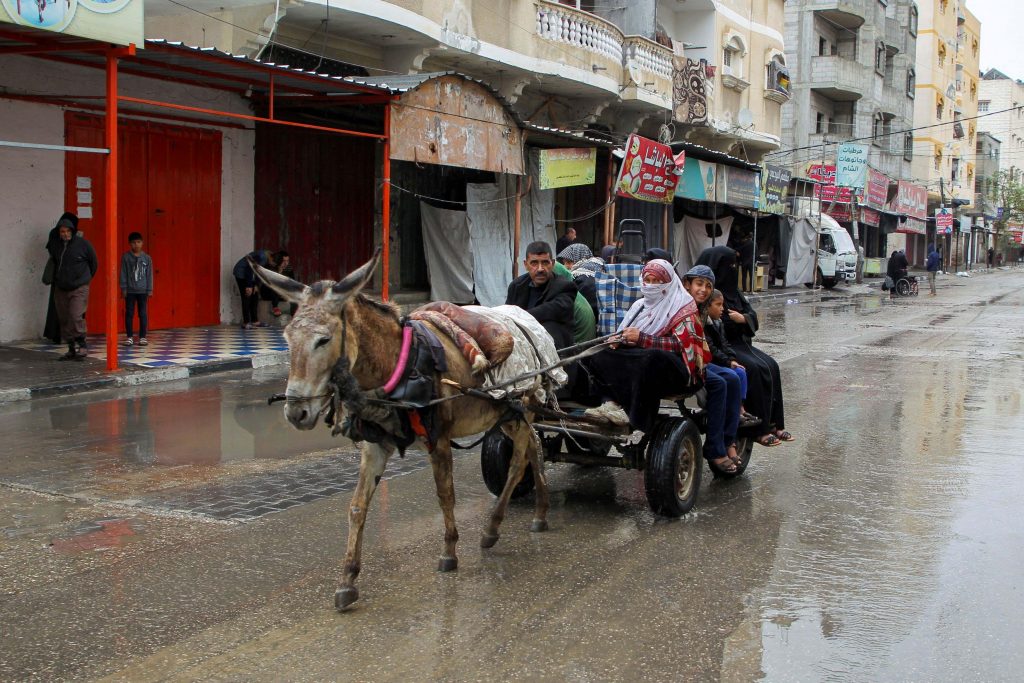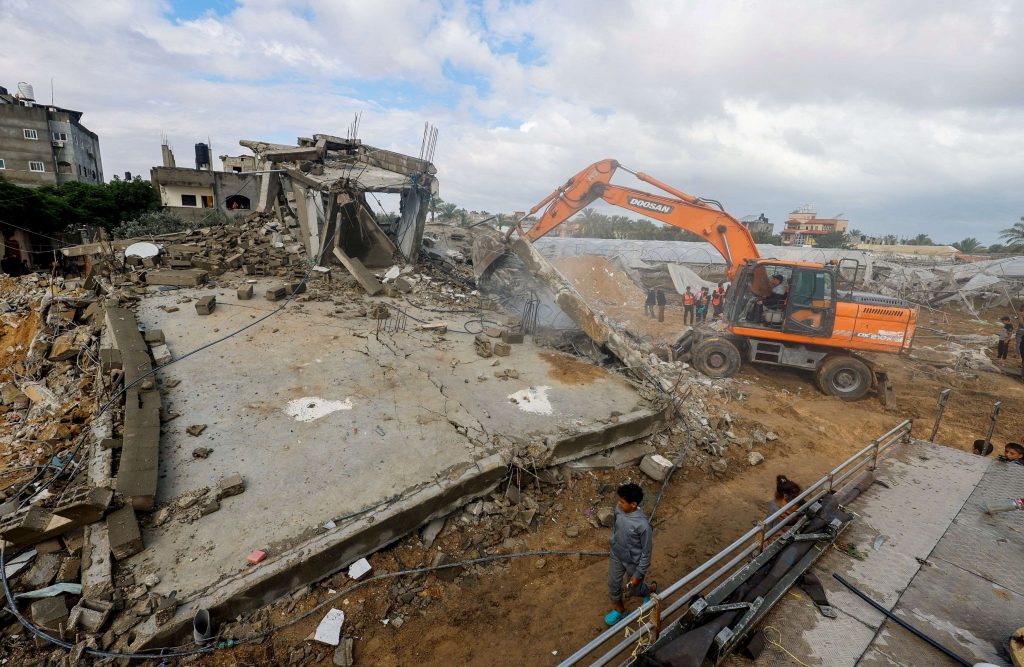TEL AVIV—The Israeli military on Monday told Palestinians sheltering in some areas of eastern Rafah to move to a designated area further north, warning them of a much-anticipated offensive to rout Hamas in the southern Gazan city.
The evacuation notice, which was delivered via text messages, phone calls, fliers and media broadcasts in Arabic, came after talks over a cease-fire to free hostages held in Gaza faltered in Cairo over the weekend, amid disagreement over whether there should be a permanent end to the fighting or just a temporary pause.
The military’s warning could still be a negotiating tactic by Israel to force Hamas into a deal, as cease-fire talks were expected to continue this week in Doha.
Israel says it needs to break up four remaining Hamas battalions located in Rafah, the one Gazan city that hasn’t been subject to a full-on Israeli ground invasion, to achieve its goal of destroying the group’s ability to attack Israel. The U.S. considers Hamas a terrorist organization, but the Biden administration has also warned Israel that an offensive in the city risks endangering more Palestinian lives amid growing international concern over the humanitarian crisis unfolding in the enclave.
More than one million Palestinians are currently sheltering in Rafah. Most of them have been displaced from their homes in other parts of Gaza during the seven-month war, which started after the Hamas-led attack on Israel killed some 1,200 people, most of them civilians, on Oct. 7. More than 34,000 Palestinians, most of them civilians, have been killed since the start of the Israeli offensive in the enclave, according to Palestinian authorities, whose figures don’t distinguish between combatants and civilians.
The Israeli military said Monday’s evacuation notice would affect an estimated 100,000 people. It didn’t say by when the affected neighborhoods had to be evacuated or give an indication of when a broader offensive might start.

People flee the eastern parts of Rafah after the Israeli military began evacuating Palestinian civilians ahead of a threatened assault on the southern Gazan city, amid the ongoing conflict between Israel and Hamas, in Rafah, in the southern Gaza Strip May 6, 2024. REUTERS/Hatem Khaled
An offensive in Rafah also poses risks for Israel. The U.S. has repeatedly called on Israel to avoid an operation in Rafah unless it has a credible plan to limit the loss of Palestinian life, and last week said it hadn’t yet received those reassurances. The military also risks killing Israeli hostages, many of whom are believed to be held in Rafah. More Israeli soldiers losing their lives during an offensive could put public pressure on the Israeli government to end the war.
Roughly 128 of the hostages who were taken from Israel during the Hamas-led Oct. 7 attacks are still being held in Gaza. At least 35 of those remaining in Gaza, including three Americans, are dead, according to recently updated figures from Israel. Israeli and American officials privately estimate the number of dead hostages could be much higher.
Talks over a cease-fire deal ended on Sunday in Cairo after Hamas failed to formally respond to an Israeli-Egyptian proposal to pause the fighting in exchange for a release of hostages. The group has repeatedly asked for assurances that Israel won’t attack again after a cease-fire, but Israeli Prime Minister Benjamin Netanyahu has refused to do so.
Hamas’s military arm also on Sunday launched rockets and mortars from near Rafah toward a border crossing controlled by Israel, killing three soldiers and wounding several others, the Israeli military said. Hamas’s military arm claimed responsibility for the attack. Israel said it closed the border crossing, one of two major entryways for aid into Gaza, after the attack.

Palestinians search for casualties under the rubble of a house destroyed in an Israeli strike, amid the ongoing conflict between Israel and Hamas, in Rafah, in the southern Gaza Strip May 6, 2024. REUTERS/Mohammed Salem
“Israel will not agree to Hamas’s demands, which would mean surrender,” Netanyahu said Sunday. “It will continue fighting until all of its objectives are achieved.”
Under pressure from the U.S., Israel has increased aid into Gaza in recent weeks, and the military on Monday called on Palestinians to move to the al-Mawasi area north of Rafah. Israel has designated the area as a humanitarian zone and said it includes field hospitals, tents and increased amounts of food, water, medication and additional supplies. But aid groups have raised questions over whether al-Mawasi will actually be safe for civilians.
The Wall Street Journal previously reported that Israel has responded to U.S. and international pressure by scrapping plans for an all-out assault of Rafah and instead plans to launch its operation in phases, evacuating neighborhoods before moving on to new areas.
Israel’s military said late last month that it had mobilized two reserve brigades, or thousands of soldiers, and deployed them to Gaza. Most of the forces are concentrated in the corridor separating northern and southern Gaza.
–Summer Said contributed to this article.


